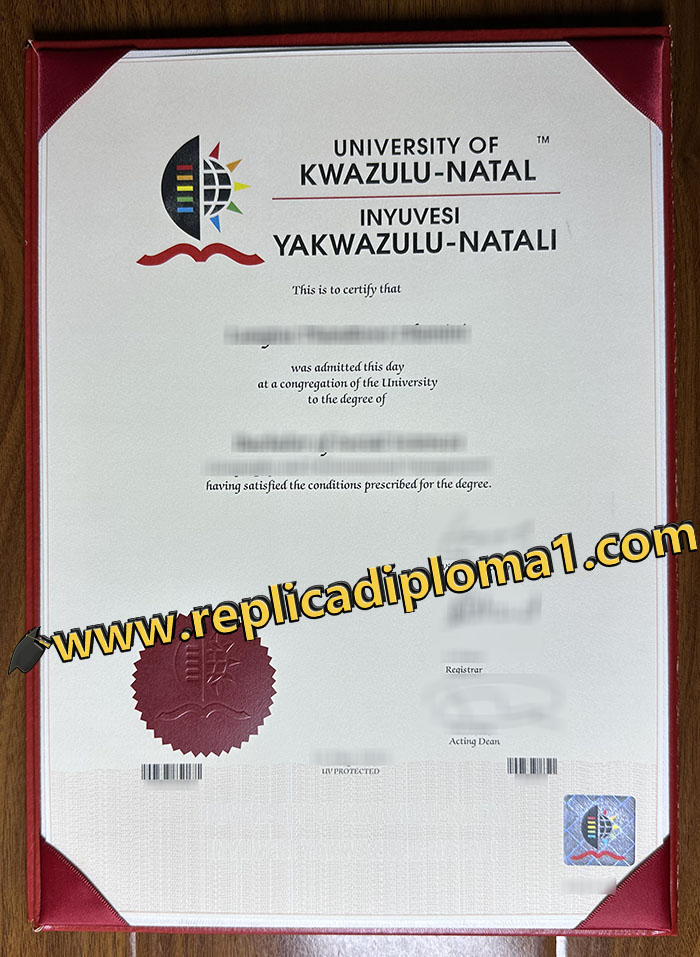How much does to order a fake University of Kwazulu-Natal diploma online?

How much does to order a fake University of Kwazulu-Natal diploma online? Where to get a realistic University of Kwazulu-Natal diploma legally? The University of KwaZulu-Natal is a pre-eminent public research comprehensive university in South Africa, formed on 1 January 2004 by the merger of the University of Natal and the University of Durban Westville, and now has five campuses across KwaZulu-Natal.
How many days does to buy a fake University of Kwazulu-Natal diploma certificate?
At present, the university has four major colleges: The Faculty of Humanities, the Faculty of Agriculture, Engineering and Science, the Faculty of Health Sciences, and the Faculty of Law and Management offer different levels of education, including specialist, undergraduate, master's and doctoral education. Major courses offered include oral health, jazz and pop music, management, Business administration, Agricultural economics, Agricultural management, accounting, finance, Chemical engineering, Civil engineering, Cognitive science, education, nutrition, environmental science, psychology, Social work, Social Development science, sports science, visual arts, land surveying, etc. The University of KwaZulu Natal has made great progress in some fields, such as social sciences, natural sciences and engineering, among which the world's leading research includes AIDS research, forests, irrigation technology, invertebrates and economic development. The school has a large number of teachers and students, currently accepting more than 2,000 international students from more than 70 countries, the school has a good international cultural atmosphere, easy to communicate in international languages.
The two universities of KwaZulu-Natal were among the first South African institutions to merge in 2004 under the government's higher education restructuring plan, which will eventually reduce the number of higher education institutions in South Africa from 36 to 21. The merger, which was confirmed by a Cabinet decision in December 2002, is the culmination of an extensive consultative process on the restructuring of the higher education sector that began in the early 1990s.

